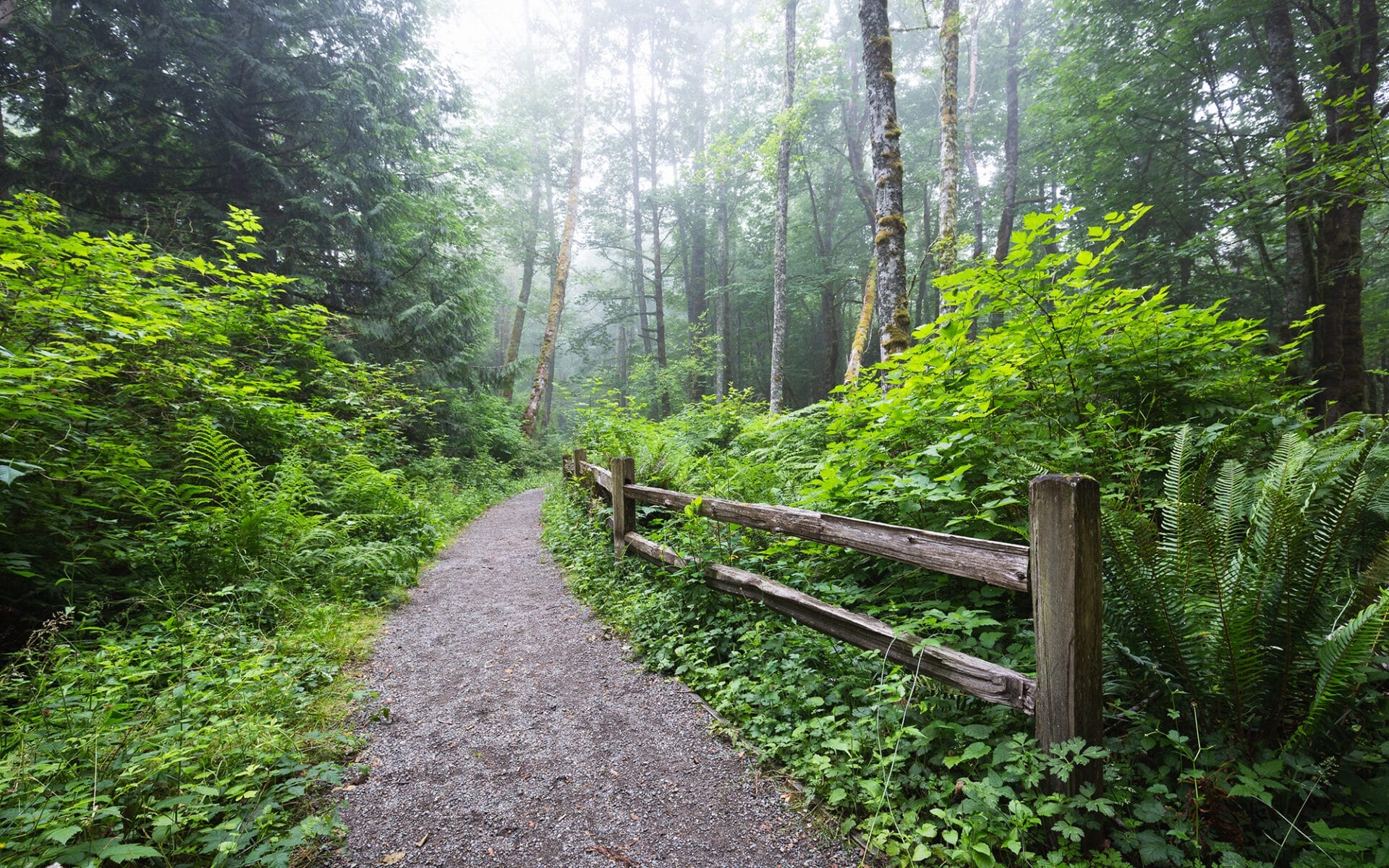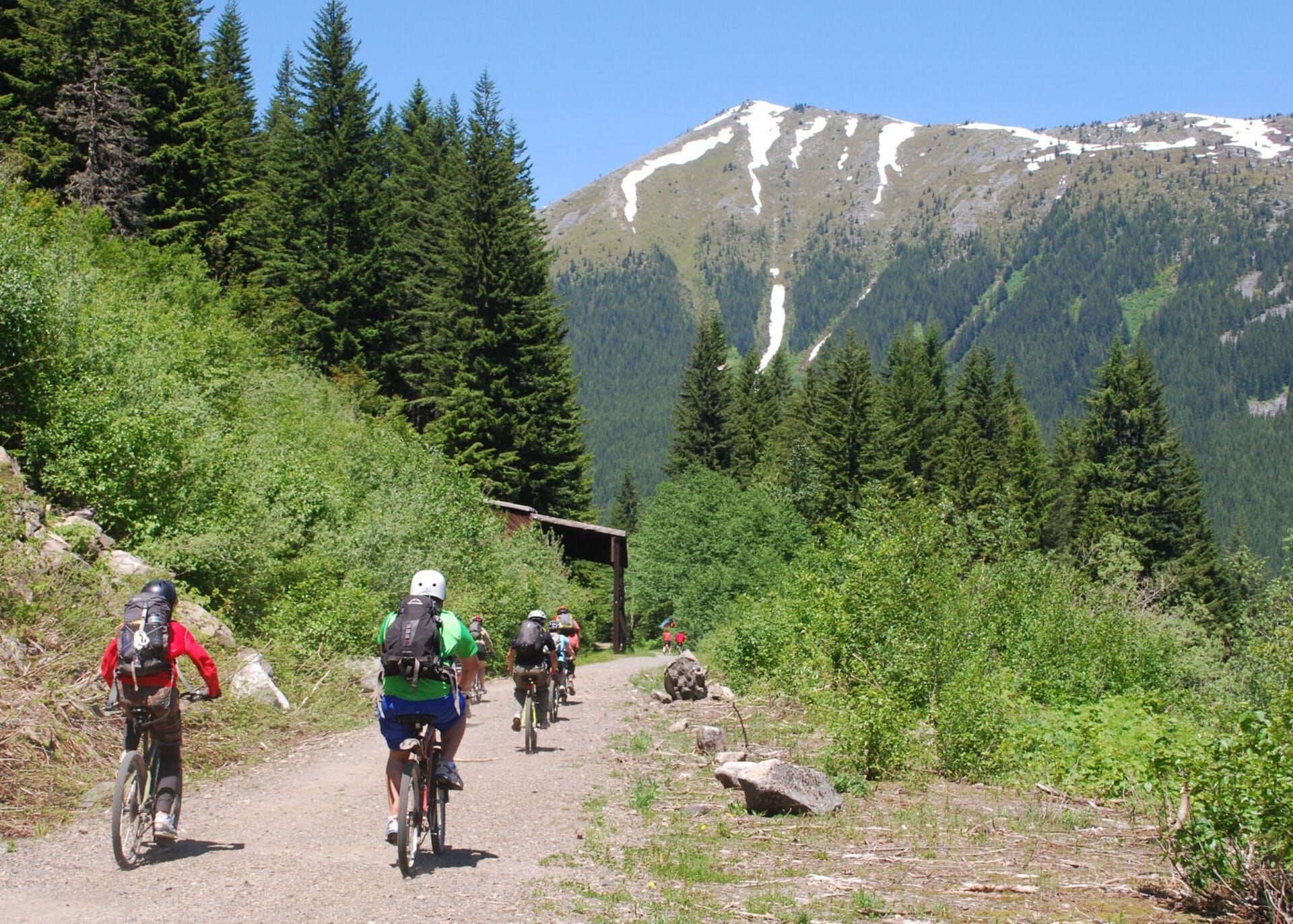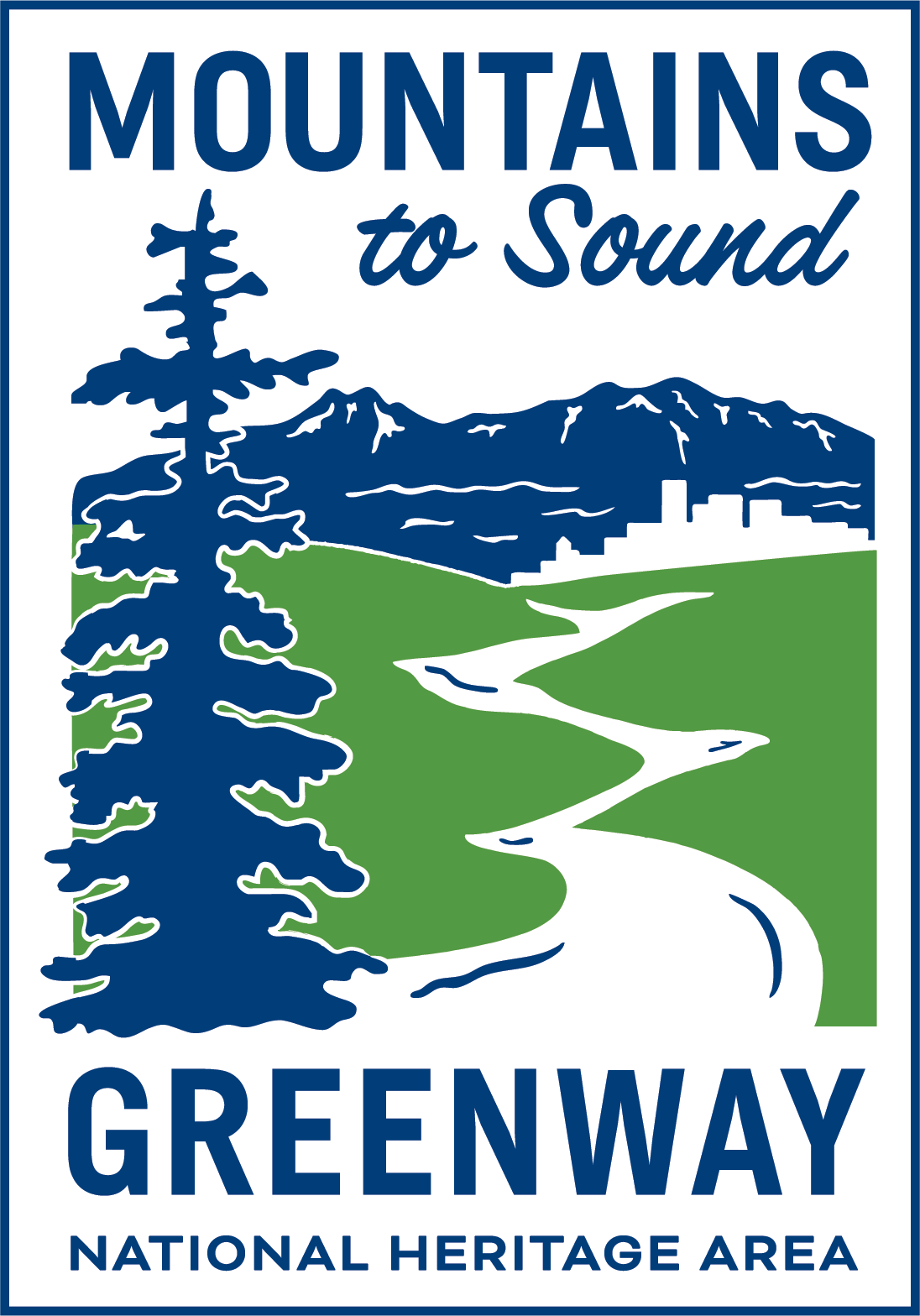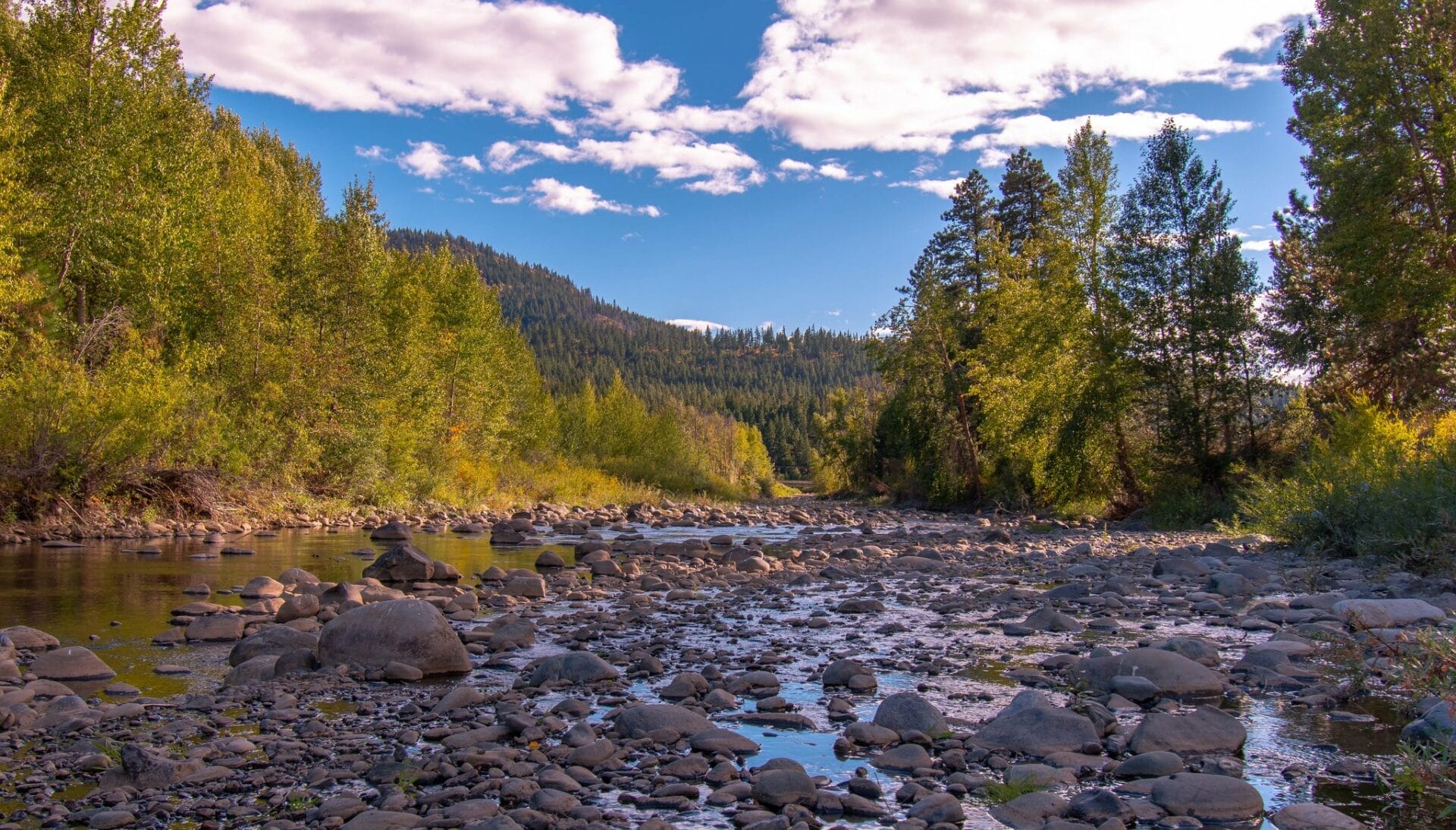2023 Legislative Priorities
From Ellensburg to Seattle, the Mountains to Sound Greenway National Heritage Area (Greenway NHA) encompasses spectacular natural lands, productive working farms and forests, opportunities for outdoor recreation, and vibrant communities with strong economies. Through supporting local, state, and federal investments, we can preserve this natural legacy for future generations.
The Mountains to Sound Greenway Trust collaborates with public land management agencies, conservation groups, citizen volunteers, and businesses to advocate for the health and accessibility of parks, forests, and waterways. Public land management agencies require adequate funding to manage these special places in order to connect natural lands, restore critical ecosystems, and maintain existing trails and facilities.
As the Washington State Legislature’s 2023 session is in full swing, here are just a few of the priorities across the Greenway NHA.
Washington State Department of Natural Resources (DNR)
Operating Budget: Community Forest Management – $2.84 million requested
We strongly support the full $2.84 million request from DNR for community forest management. The Governor’s Budget put forward $1.5 million, which would not fund roads, restoration, or recreation.
Community forests improve habitat, safety, and sustainable recreation access by engaging local community members, tribal governments, and land management agencies to collaboratively plan for sustainable management of the forest. Washington is fortunate to have ~90,000 acres of community forest across our state. DNR oversees about 53,000 acres between the two forests in the Teanaway valley and Klickitat canyon, utilizing management plans developed in partnership with local communities and stakeholders. The proposed $1.5 million budget will make it difficult for DNR to uphold priorities established by those communities, make good on promises to stakeholders, and match partner investments. The $1.3 million difference from DNR’s original request represents:
- $184,000 to maintain trail and recreation facilities in the Teanaway, as put forward in the recently-completed and publicly reviewed West Fork Teanaway Trails Plan.
- $325,000 to maintain and permit both forests’ road networks, which provide vital fire response and public access, and control noxious weed species along public access corridors.
- $300,000 to pursue the water quality, forest health, recreational and cultural resource protection goals laid out in the Klickitat Canyon Community Forest, with consideration for its proximity to the Klickitat Salmon Hatchery and location within the traditional and accustomed use areas of several Klickitat bands.
- $490,200 to fund biologists to design, implement, and monitor habitat restoration projects for salmon and other upland species in the Teanaway Community Forest, and to collect water temperature and flow data throughout this vital headwater basin.
Our community forests are an amazing resource for both our citizens, the plant and animal life we so value, and the health and safety of our communities. We applaud the state Legislature for its foresight in establishing these lands, and must now ensure they are safely and sustainably managed into the future.

Department of Natural Resources (DNR) Trust Land Transfer (TLT)
Capital Budget: Trust Land Transfer – $25.6 million requested
This innovative tool allows the Department of Natural Resources (DNR) to transfer under-performing state trust lands out of trust status and acquire legislative funding to purchase replacement lands with higher long-term income-producing potential.
This enables conservation of lands that have high ecological values and public benefits. Through a legislative appropriation from the state capital budget, TLT enables DNR to keep special places in public ownership while also improving the revenue-generating capacity of the trust lands portfolio.
Many iconic places in the Greenway have been conserved using Trust Land Transfer funding, including Natural Resource Conservation Areas at the Middle Fork Snoqualmie, Mt. Si, and West Tiger Mountain, and it is imperative that this program continues with robust funding. Learn more.
In addition to the capital funding request of $25.6 million for Trust Land Transfer projects, including moving a parcel at Tiger Mountain into conservation status, it is imperative to pass program legislation for Trust Land Transfer through HB 1423/SB 5372, or a revised version in the House (HB 1460) that includes some important corrections.
DNR is seeking many important investments including funding for enhancing climate resilience, adding conservation corps teams, pro-equity/anti-racism initiative, supporting urban tree canopy, and a critical $1.43 million for tribal outreach and engagement as well as $7.78 million to protect lands and tribal treaty rights and to manage impacts of recreation on state lands through a statewide responsible recreation plan.

Recreation and Conservation Office | Washington Wildlife and Recreation Program (WWRP)
Capital Budget: WWRP full funding for all grant applications $159 million (Governor Inslee’s budget proposed $120 million)
WWRP is the largest source of funding for recreation and conservation in Washington. Funding for this competitive grant program provides funds for new local parks, farmland preservation, critical habitat protection, new trails, and water access projects across the state. Learn more.
The Recreation and Conservation Office is seeking many important investments, including $312K each for new staff positions of a tribal liaison and a diversity, equity and inclusion coordinator.
Washington State Parks and Recreation Commission
Capital Budget: Palouse to Cascades State Park Trail | $1.4 million for trail structures, $2.49 million for Kittitas Depot renovation
The Palouse to Cascades State Park Trail, the east-west, cross-state trail that runs through much of the Mountains to Sound Greenway National Heritage Area and serves as an integral part of the Great American Rail-Trail across the country, should see significant capital improvements and ongoing maintenance.
Operating Budget: No Child Left Inside
Recreation and Conservation Office in partnership with Washington State Parks and Recreation
Advocate Request: Additional $4.5 million per biennium for a total $9 million
The No Child Left Inside Coalition is advancing an advocate-led request for an additional $4.5 million per biennium for the No Child Left Inside outdoor education program which provides critical matching funds that support education and recreation programs engaging underserved youth in the outdoors. The program currently receives $4.5 million per biennium while grant applications for the 2023-2025 biennium total $12.3 million.
Washington State Parks is seeking many important investments including an increase in the No Child Left Inside outdoor education grant program allocation, critical ongoing maintenance funding, funds to improve parks for climate resiliency and cultural resource management, investments in Diversity, Equity, and Inclusion at parks, and a critical $1.59 million to manage recreation impacts on state lands.

2023 Priorities from Partner Organizations
The Nature Conservancy: https://www.washingtonnature.org/fieldnotes/2023-session-priorities
Washington Association of Land Trusts: https://walandtrusts.org/get-involved/state-priorities/
Washington Farmland Trust, Farmland Protection and Land Access program, https://farmland.org/save-washington-farmland/
Washington Trails Association: https://www.wta.org/news/signpost/and-were-off-washington-states-2023-legislative-session-1
Eastrail Partners: Transportation Funding Priorities
Want to support these important investments in public lands? Contact your state legislators and make your voice heard!





